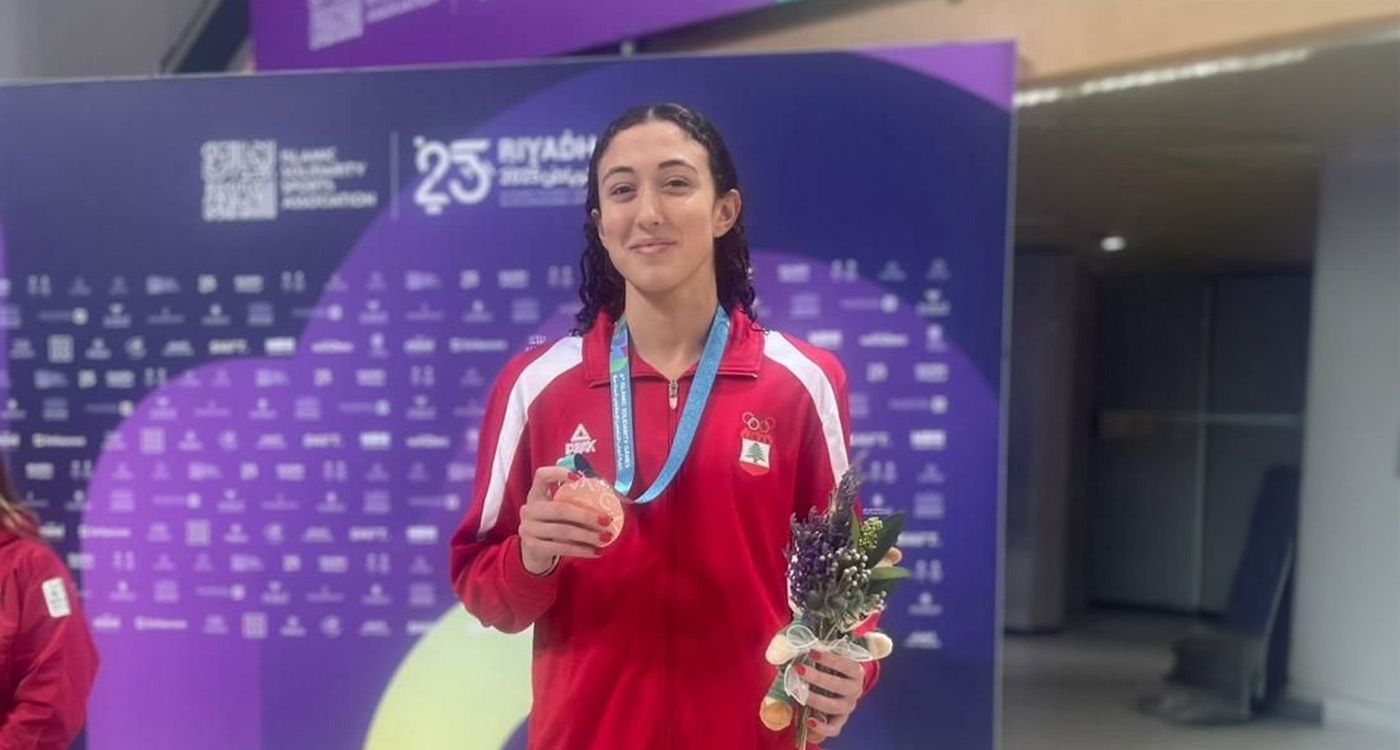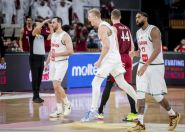
Lynn El-Hajj lit the first spark for Lebanon at the Islamic Solidarity Games (ISG) in Riyadh. In the final of the 100m breaststroke, the swimmer claimed bronze in 1:10.90, just a few hours after dominating her heat in 1:10.66. Clean start, tight underwater phase, controlled second 50 with steady arm tempo: the Beirut native secured her podium spot in the final fifteen meters. For someone who represented Lebanon at the Paris Games, this medal is more than just an achievement; it is a milestone in a career built on consistency, now aiming to regularly stay under 1:11 throughout the season.
Around El-Hajj, the head of mission Sami Kablawi, administrator Wissam Cherri, and coach François Ghattas are orchestrating a steady rise in form without deviating from the training plan: arm speed, final underwater phase, wall transitions. The goal is clear: convert the momentum from Paris into sustainable time benchmarks and capitalize in Riyadh on the 100/200 breaststroke events, with a possible relay depending on entries.
A Quick Reminder About the Games
The Islamic Solidarity Games, a multisport competition run by the Islamic Solidarity Sports Federation under the umbrella of the Organization of Islamic Cooperation, have found their stride over the years. The first edition took place in 2005 in Mecca, followed by Tehran 2010, Palembang 2013, Baku 2017, and Konya 2022, establishing the event within the sporting landscape of the Muslim world. The 2025 edition brings the flame back to Saudi Arabia, in Riyadh, from November 7 to 21, with an expanded program and strong fields in swimming, combat sports, and racquet sports. For Lebanon, it is both a proving ground and an opportunity to strengthen institutional ties.
Other Lebanese Athletes Take the Stage
In table tennis, the pair Mariana Sahakian – Bissan Cherri started with a professional, well-managed win over Bahrain’s Dana Al-Khayyat – Hessa Al-Thani, before falling to the Iranians and then the Egyptians in the quarterfinals; a run hindered by the absence of a third player, but marked by promising sequences that leave room for optimism. On the tatami, Ghadi Moussa (–73 kg) paid the price for a tricky first-round matchup against the Emirati Mohammad Bekov, while Kramnob Saghaybov (–100 kg) struck early in the round of 32 before faltering in the quarters on penalties and narrowly losing to Tunisia’s Qusay Ben Gharz. Coaching was provided by Nacif Elias Jr., with the same message as in the pool: tighten the game, reduce mistakes, stay in it until the final moments.
Now, What’s Next
For Lynn El-Hajj, this bronze medal is worth more than its metal: it sets the pace, reassures the staff, and establishes a momentum that should translate into regular 1:10-range swims and perhaps even a second shot in the 200m breaststroke if the schedule allows. For the rest of the delegation, the equation is classic but demanding: manage competition openings, control the emotional rebound after each round, and turn narrow windows of opportunity into decisive results. In Riyadh, Lebanon has already made its mark. The rest is yet to be written.




Comments